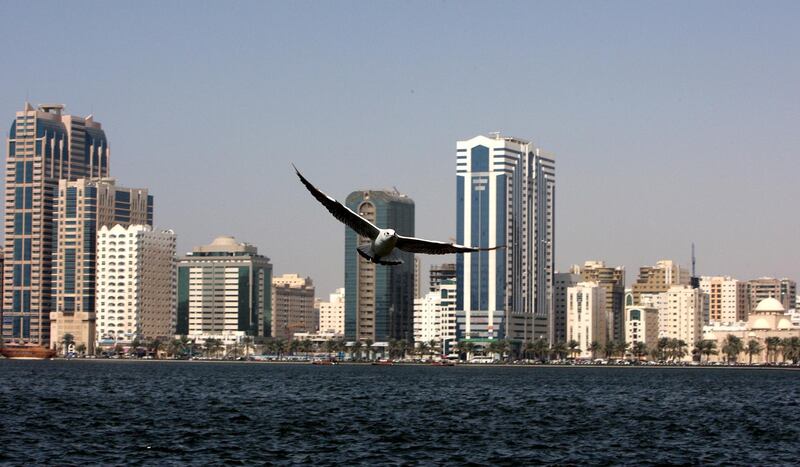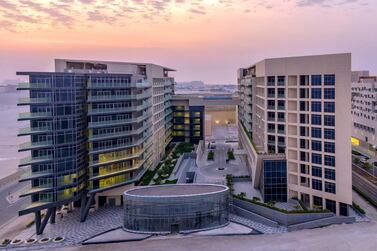Sharjah's economy is expected to grow steadily through to 2022, as its long-term credit rating of 'BBB+/A-2' with a stable outlook was affirmed by S&P Global.
The credit rating agency forecast the northern emirate's economy will expand steadily by an average of about 2 per cent between 2019 and 2022, driven by growth in manufacturing, construction, and tourism sectors, S&P said in a report on Sunday. Debt and interest burdens will remain "moderate".
"The ratings are supported by Sharjah's relatively strong fiscal position, despite a low revenue base, and the advantages that Sharjah derives from being part of the UAE, including low external financing risks and the potential for extraordinary financial support from the UAE," S&P said. "The emirate's economy is relatively diverse compared with those of other sovereigns in the region."
Sharjah’s economy is expected to benefit from overall growth in the UAE economy, particularly in neighbouring Dubai, and increased government income from the 5 per cent VAT that was introduced in January 2018. The emirate's economy is projected to grow 2.3 per cent this year and 2.5 per cent in 2020, up from 0.7 per cent in 2018, thanks to increased public investment and a recovery of domestic demand in the region, the rating agency said.
Sharjah's economic growth through to 2022 will be supported by the ongoing expansion of its free zones, including the heavy industrial free zone at Hamriyah, and the government's plans for rezoning industrial and residential areas.
"Sharjah should also benefit from increased economic activity associated with Expo 2020 in Dubai, and Abu Dhabi's new economic stimulus plan," the report said.
In contrast, economic activity in Sharjah remained moderate in 2018, due to weaker demand from the UAE's construction sector, slower private investment growth in real estate, and tighter credit conditions for small and medium businesses, the report said.
The credit rating agency may raise its ratings if net government debt or debt-service costs decreased "materially" but said this was unlikely over the next two years.
S&P could potentially lower its ratings over the next two years if bigger-than-expected budget deficits lead to an accelerated increase in the government's debt or interest costs. The ratings could also come under pressure if economic growth is significantly weaker than its projections.







